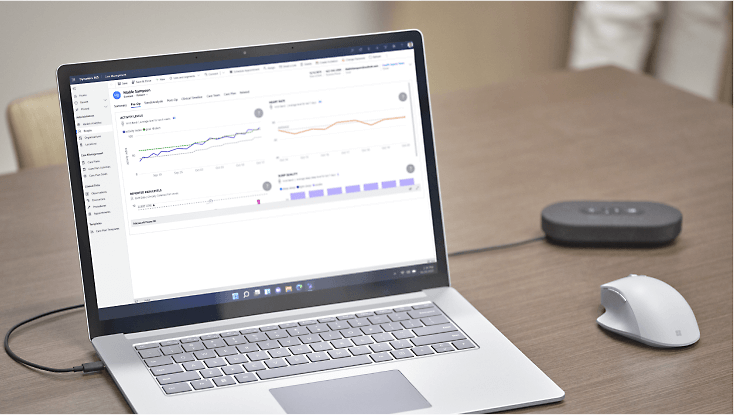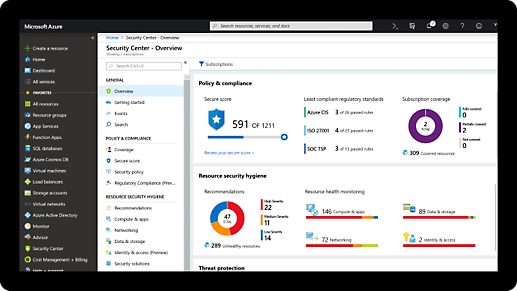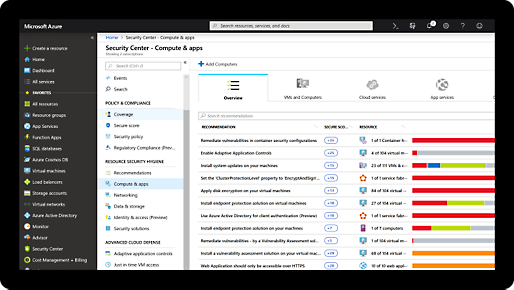Improve patient and research outcomes with analytics and insights
Azure Health Data Services is a suite of purpose-built technologies for protected health information (PHI) in the cloud. It's built on the global open standards Fast Healthcare Interoperability Resources (FHIR)® and Digital Imaging Communications in Medicine (DICOM). Ensure data privacy within compliance boundaries, de-identify data for secondary use, and generate insights with analytics and AI tools.

The evolution of Azure API for FHIR
Azure Health Data Services is the evolved version of Azure API for FHIR and offers additional technology and services. Existing customers can continue using the product without disruption to service or change in pricing structure.

Quick deployment of managed, enterprise-grade FHIR, DICOM, and MedTech services.
Tools to combine disparate health datasets and standardize data in the cloud.
Connectors to Azure Synapse Analytics, Azure Machine Learning, and Power BI to generate insights from real-world data.
Designed for protected health information (PHI), meeting all regional compliance requirements including HIPAA, GDPR, and CCPA.
Streamline health workloads
Unify healthcare data in the cloud to make PHI easier to exchange across the care continuum. Standardize diverse data streams such as clinical, imaging, device, and unstructured data using FHIR, DICOM, and MedTech services.


Gain insights from PHI data in real time
Prepare standardized data for advanced AI and machine learning applications and create cohorts for clinical research and trials. Connect to Power BI and Azure Synapse Analytics for visualizations and analytics, use SMART on FHIR apps to build new applications, and apply machine learning to create new algorithms for diagnosis assistance and research.
Build on a trusted cloud for healthcare
Azure Health Data Services is HITRUST CSF certified, which helps organisations store PHI in accordance with HIPAA and GDPR requirements and meet ONC and CMS mandates. Control access of health data with application monitoring and role-based access controls within a compliance boundary.


Decentralize clinical trials with remote monitoring
Move from reactive to proactive care for better patient outcomes and experiences. Use the MedTech service to ingest high-frequency biometric data from devices, including wearables. Standardize that data into FHIR to view in context with other clinical datasets. Enable remote monitoring of patients with chronic diseases, accelerate decentralized clinical trials, and allow patients access to virtual care.

Process imaging data quickly and at scale
Streamline radiology and digital pathology workflows with DICOM cast technology. Manage, store, query, retrieve, and exchange DICOM files in the cloud. Query metadata across clinical and imaging records to reduce time to diagnosis. Process medical imaging data into research cohorts quickly and at scale.
Comprehensive security and compliance, built in
-
Microsoft invests more than USD1 billion annually on cybersecurity research and development.



-
We employ more than 3,500 security experts who are dedicated to data security and privacy.


Plan ahead with simple, transparent pricing
- No upfront costs or surprises—pay for only what you need.
- Azure Health Data Services pricing is based on structured storage used, provisioned throughput, and service runtime.
- Existing Azure API for FHIR customers can continue using the product without disruption to service or change in pricing structure.
Get started with an Azure free account
1

2

After your credit, move to pay as you go to keep building with the same free services. Pay only if you use more than your free monthly amounts.
3

Azure Health Data Services resources and documentation
Documentation and tutorials
Azure Health Data Services documentation
Azure API for FHIR documentation
Quickstart: Deploy Azure API for FHIR using the Azure portal
Tutorial: Microsoft Entra ID (formerly Azure Active Directory) SMART on FHIR proxy
What is Azure Health Data Services?
Get started with the DICOM service
Authentication and authorization for Azure Health Data Services
Get started with the IoT connector
Get started with the FHIR service
Deploy an Azure Health Data Services workspace using the Azure portal
GitHub
Frequently asked questions about Azure Health Data Services
-
Azure Health Data Services has evolved to support multiple health data standards for the exchange of structured data. A single collection of APIs allows you to deploy multiple data service instances of different service types (FHIR, DICOM, and IoT Connector) that work seamlessly with one another.
-
HL7 FHIR, or Fast Healthcare Interoperability Resources, is an open-standard data model that enables data interoperability for systems using FHIR. Learn more.
-
Digital Imaging and Communications in Medicine (DICOM) is the standard for the communication and management of medical imaging information and related data. DICOM is most commonly used for storing and transmitting medical images enabling the integration of medical imaging devices such as scanners, servers, workstations, printers, network hardware, and picture archiving and communication systems (PACS) from multiple manufacturers.
-
The Azure Health Data Services de-identification service is a cloud-based API service that applies state-of-the-art machine learning models to automatically extract, redact, or surrogate protected health information (PHI) entities—including HIPAA’s 18 PHI identifiers – from unstructured text such as clinical notes, messages, or clinical trial studies.
-
Detailed pricing information is available on the pricing page.
-











